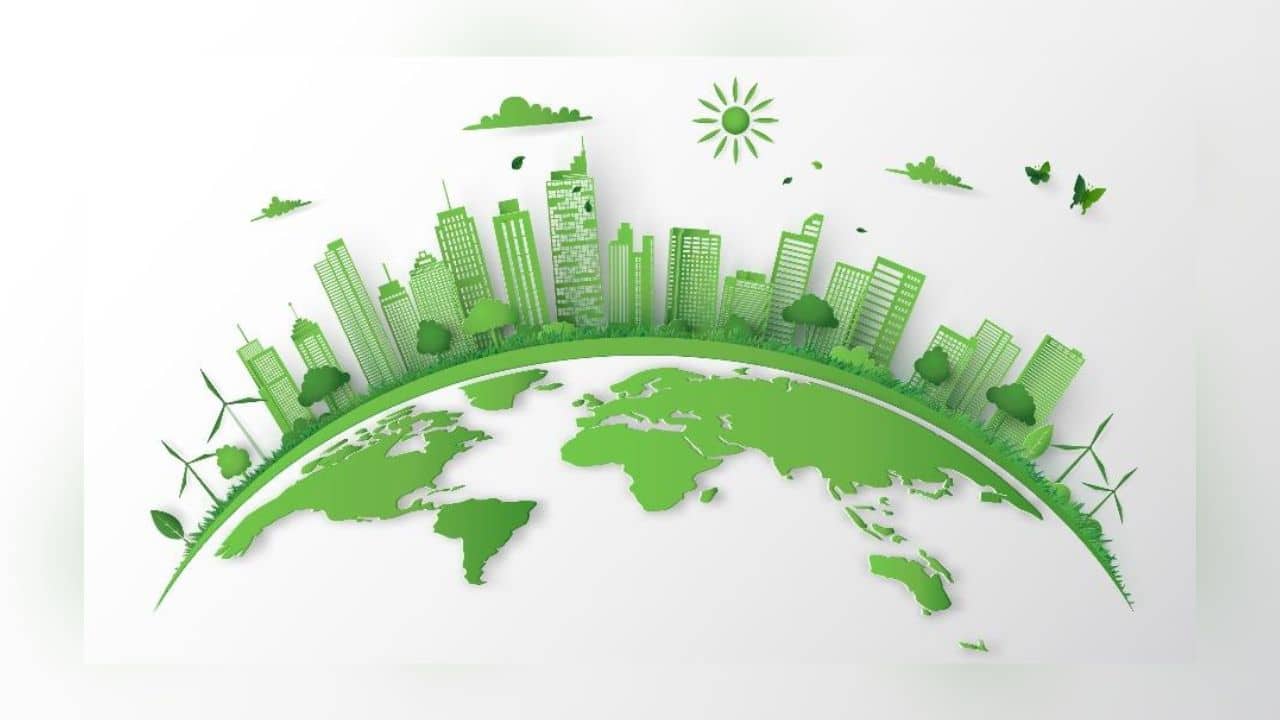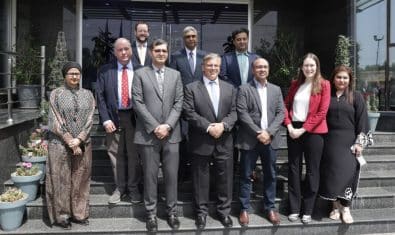In the face of the global climate crisis, each one of us has a role to play. As citizens of Pakistan, this responsibility rings especially true. We can make a significant impact by consciously reducing our carbon footprint – the total amount of greenhouse gases our actions generate, both directly and indirectly.
Ten practical thoughtful steps that every Pakistani can take to facilitate a transition towards a more sustainable and environmentally friendly Pakistan.
Sustainable Transport Choices
The surge of urbanization in Pakistan’s cities often leads to a heavy influx of private vehicles, contributing significantly to air pollution and carbon emissions. Sustainable transport is the need of the hour. Adopting public buses, carpooling, or commuting via rickshaws can help reduce the number of cars on the road, thus limiting greenhouse gas emissions.
For short distances, consider healthier and carbon-free options like walking or bicycling. The market for hybrid and electric vehicles in Pakistan is also growing. Switching to these eco-friendly vehicles can make a notable difference in our carbon footprints.
Energy Efficient Appliances
The frequent power shortages experienced across Pakistan underscore the necessity of energy-efficient appliances. Replacing conventional bulbs with LED lights and opting for appliances with inverter technology, such as refrigerators and air conditioners, can significantly lower energy consumption.
Not only does this minimize carbon emissions, but it also provides economic relief in the form of reduced electricity bills.
Conscious Eating Habits
Pakistan, with its rich agricultural heritage, provides an opportunity to consume a diet based primarily on local, plant-based foods. Livestock farming generates substantial greenhouse gases, and by reducing our meat and dairy intake, we can notably lessen these emissions.
Buying from local farmers’ markets supports the local economy, promotes sustainable farming practices, and reduces carbon emissions associated with transporting food over long distances.
Reduce, Reuse, Recycle
The increasing urbanization in Pakistan corresponds with growing waste generation. Embracing the mantra of ‘Reduce, Reuse, Recycle’ can help combat this challenge effectively.
Simple steps such as carrying reusable shopping bags, recycling plastics and paper, and composting organic waste at home can reduce the amount of waste that ends up in landfills and decrease the energy needed to produce new goods.
Save Water
Water scarcity is an escalating problem in many regions of Pakistan. Adopting water-saving practices like taking bucket baths instead of showers, fixing leaking pipes promptly, and using water-efficient appliances can lead to significant water conservation.
This not only addresses the issue of scarcity but also reduces the energy consumed in water treatment and distribution, thus lowering overall carbon emissions.
Alternative Energy Sources
Blessed with an abundance of sunlight and wind, Pakistan has vast untapped potential for harnessing renewable energy. Investing in solar panels or supporting businesses that use renewable energy sources is a viable option for individuals and communities.
Transitioning to energy providers that generate power from renewable resources also contributes to reducing our dependence on carbon-intensive fossil fuels.
Mindful Travel
Travel, particularly by air, contributes significantly to global carbon emissions. For short-distance travel within Pakistan, trains and buses are more carbon-efficient alternatives. For unavoidable long-haul flights, consider airlines that offer carbon offset programs.
These initiatives allow passengers to invest in environmental projects, which balance out the carbon emissions from their flights.
Plant Trees
Tree planting initiatives such as the ‘Billion Tree Tsunami’ play a vital role in sequestering carbon from the atmosphere. If you have a garden, consider planting native tree species. These not only absorb CO2 but are better adapted to local conditions, require less water, and support local biodiversity.
Additionally, trees provide shade, reducing the need for air conditioning and combatting urban heat island effects.
Conscious Shopping
Opting for locally made goods minimizes the carbon emissions associated with long-distance shipping. Furthermore, selecting products with less packaging and prioritizing quality, durable goods can reduce the constant demand for new products, promoting a more circular economy.
These choices lessen the strain on natural resources and contribute to the reduction of overall carbon emissions.
Spread the Word
Promoting awareness and educating others about the importance of reducing our carbon footprint is crucial for catalyzing change. Engage in conversations with friends, family, and colleagues about these issues, and advocate for green policies in your workplace and community.
Every conversation matters, and every action counts. Together, we can inspire collective action towards a more sustainable future for Pakistan.
Conclusion
In the global fight against climate change, reducing our carbon footprint is more than an individual responsibility—it’s a collective commitment. Although these actions might seem small in isolation, when adopted on a large scale across Pakistan, they can lead to substantial reductions in our country’s carbon emissions.
Taking measures like choosing sustainable transport options, embracing energy-efficient appliances, adjusting our dietary habits, recycling diligently, conserving water, promoting renewable energy, being mindful of our travel choices, planting trees, shopping consciously, and raising awareness can transform our relationship with the environment.
As Pakistanis, we have a unique opportunity to lead by example and make a significant difference in the face of climate change. Let’s seize this chance to safeguard our beloved homeland and contribute to global efforts to ensure a sustainable future for all.
By making conscious decisions in our everyday lives, we’re not only protecting our environment but also securing a better future for the next generations to come.
Let’s pledge to reduce our carbon footprint, one step at a time, starting today.
This article is written by Rayyan Jamil.






















